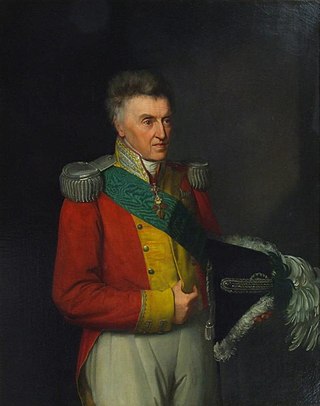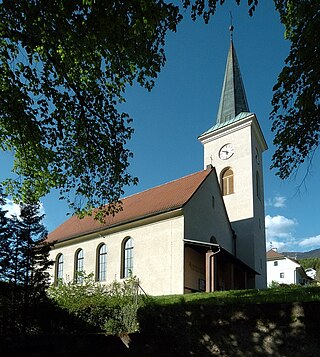| |||||
| Millennia: | |||||
|---|---|---|---|---|---|
| Centuries: | |||||
| Decades: | |||||
| See also: | Other events of 1781 List of years in Austria | ||||
Events from the year 1781 in Austria
| |||||
| Millennia: | |||||
|---|---|---|---|---|---|
| Centuries: | |||||
| Decades: | |||||
| See also: | Other events of 1781 List of years in Austria | ||||
Events from the year 1781 in Austria
| | This section needs expansion. You can help by adding to it. (October 2015) |
| | This section needs expansion. You can help by adding to it. (October 2015) |
| | This section needs expansion. You can help by adding to it. (October 2015) |

AntonDiabelli was an Austrian music publisher, editor and composer. Best known in his time as a publisher, he is most familiar today as the composer of the waltz on which Ludwig van Beethoven wrote his set of thirty-three Diabelli Variations.

Anthony of Saxony was a King of Saxony from the House of Wettin. He became known as Anton der Gütige.

Joseph II was Holy Roman Emperor from 18 August 1765 and sole ruler of the Habsburg monarchy from 29 November 1780 until his death. He was the eldest son of Empress Maria Theresa and her husband, Emperor Francis I, and the brother of Marie Antoinette, Leopold II, Maria Carolina of Austria, and Maria Amalia, Duchess of Parma. He was thus the first ruler in the Austrian dominions of the union of the Houses of Habsburg and Lorraine, styled Habsburg-Lorraine.

Nikolaus Joseph Freiherr von Jacquin was a scientist who studied medicine, chemistry and botany.

The February Patent was a constitution of the Austrian Empire promulgated in the form of letters patent on 26 February 1861.

Archduke Ferdinand Karl of Austria-Este was a son of Holy Roman Emperor Franz I and Maria Theresa of Austria. He was the founder of the House of Austria-Este and Governor of the Duchy of Milan between 1765 and 1796. He was also designated as the heir to the Duchy of Modena and Reggio, but he never reigned, owing to the Napoleonic Wars.

Tržič is a town in northern Slovenia, close to the Austrian border. It is the seat of the Municipality of Tržič.

Josephinism is a name given collectively to the domestic policies of Joseph II, Holy Roman Emperor (1765–1790). During the ten years in which Joseph was the sole ruler of the Habsburg monarchy (1780–1790), he attempted to legislate a series of drastic reforms to remodel Austria in the form of what liberals saw as an ideal Enlightened state. This provoked severe resistance from powerful forces within and outside his empire, but ensured that he would be remembered as an "enlightened ruler" by historians from then to the present day.

The Patent of Toleration was an edict of toleration issued on 13 October 1781 by the Habsburg emperor Joseph II. Part of the Josephinist reforms, the Patent extended religious freedom to non-Catholic Christians living in the crown lands of the Habsburg monarchy, including Lutherans, Calvinists, and the Eastern Orthodox. Specifically, these members of minority faiths were now legally permitted to hold "private religious exercises" in clandestine churches.

The 1782 Edict of Tolerance was a religious reform of Emperor Joseph II during the time he was emperor of the Habsburg monarchy as part of his policy of Josephinism, a series of drastic reforms to remodel Austria in the form of the ideal Enlightened state. Joseph II's enlightened despotism included the Patent of Toleration, enacted in 1781, and the Edict of Tolerance in 1782. The Patent of Toleration granted religious freedom to the Lutherans, Calvinists, and Serbian Orthodox, but it was not until the 1782 Edict of Tolerance that Joseph II extended religious freedom to the Jewish population.

Weissensee is a municipality in the district of Spittal an der Drau in Carinthia, Austria.

Arriach is a municipality in the district of Villach-Land in the Austrian state of Carinthia.

Fresach is a municipality in Villach-Land District, in the Austrian state of Carinthia.

The Austrian Academy of Sciences is a legal entity under the special protection of the Republic of Austria. According to the statutes of the Academy its mission is to promote the sciences and humanities in every respect and in every field, particularly in fundamental research.

Mattsee is a market town at the eponymous lake in the district of Salzburg-Umgebung in the Austrian state of Salzburg.
Bishops of the Wrocław Bishopric, Prince-Bishopric (1290–1918), and Archdiocese.

The House of Lords was the upper house of the Imperial Council, the bicameral legislature of the Austrian Empire from 1861 and of the Cisleithanian (Austrian) half of Austria-Hungary upon the Compromise of 1867. Created by the February Patent issued by Emperor Franz Joseph I on 26 February 1861, it existed until the end of World War I and the dissolution of the Dual Monarchy, when on 12 November 1918 the transitional National Assembly of German-Austria declared it abolished. It was superseded by the Federal Council of the Austrian Parliament implemented by the 1920 Federal Constitutional Law.

Anton Petter was a painter from the Austrian Empire.
![]() Media related to 1781 in Austria at Wikimedia Commons
Media related to 1781 in Austria at Wikimedia Commons